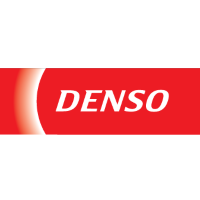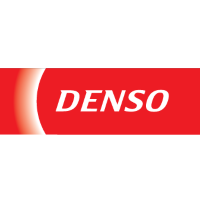
Denso Corp
TSE:6902

Intrinsic Value
The intrinsic value of one
 Denso Corp
stock under the Base Case scenario is
2 915.32
JPY.
Compared to the current market price of 1 665.5 JPY,
Denso Corp
is
Undervalued by 43%.
Denso Corp
stock under the Base Case scenario is
2 915.32
JPY.
Compared to the current market price of 1 665.5 JPY,
Denso Corp
is
Undervalued by 43%.
The Intrinsic Value is calculated as the average of DCF and Relative values:

Valuation History
Denso Corp

Fundamental Analysis


Revenue & Expenses Breakdown
Denso Corp

Balance Sheet Decomposition
Denso Corp

| Current Assets | 4T |
| Cash & Short-Term Investments | 1.2T |
| Receivables | 1.2T |
| Other Current Assets | 1.6T |
| Non-Current Assets | 4.6T |
| Long-Term Investments | 2.1T |
| PP&E | 2.1T |
| Intangibles | 220.5B |
| Other Non-Current Assets | 194.5B |
Free Cash Flow Analysis
Denso Corp

| JPY | |
| Free Cash Flow | JPY |
Earnings Waterfall
Denso Corp

|
Revenue
|
7.1T
JPY
|
|
Cost of Revenue
|
-6T
JPY
|
|
Gross Profit
|
1.1T
JPY
|
|
Operating Expenses
|
-539.3B
JPY
|
|
Operating Income
|
534.7B
JPY
|
|
Other Expenses
|
-84.8B
JPY
|
|
Net Income
|
449.9B
JPY
|
Profitability Score
Profitability Due Diligence

Denso Corp's profitability score is 50/100. The higher the profitability score, the more profitable the company is.

Score
Denso Corp's profitability score is 50/100. The higher the profitability score, the more profitable the company is.
Solvency Score
Solvency Due Diligence

Denso Corp's solvency score is 79/100. The higher the solvency score, the more solvent the company is.

Score
Denso Corp's solvency score is 79/100. The higher the solvency score, the more solvent the company is.
Wall St
Price Targets
Price Targets Summary
Denso Corp

According to Wall Street analysts, the average 1-year price target for
 Denso Corp
is 2 746.8 JPY
with a low forecast of 2 222 JPY and a high forecast of 3 150 JPY.
Denso Corp
is 2 746.8 JPY
with a low forecast of 2 222 JPY and a high forecast of 3 150 JPY.
Dividends
Current shareholder yield for  Denso Corp is
.
Denso Corp is
.
Shareholder yield represents the total return a company provides to its shareholders, calculated as the sum of dividend yield, buyback yield, and debt paydown yield. What is shareholder yield?
The intrinsic value of one
 Denso Corp
stock under the Base Case scenario is
2 915.32
JPY.
Denso Corp
stock under the Base Case scenario is
2 915.32
JPY.
Compared to the current market price of 1 665.5 JPY,
 Denso Corp
is
Undervalued by 43%.
Denso Corp
is
Undervalued by 43%.























































 You don't have any saved screeners yet
You don't have any saved screeners yet